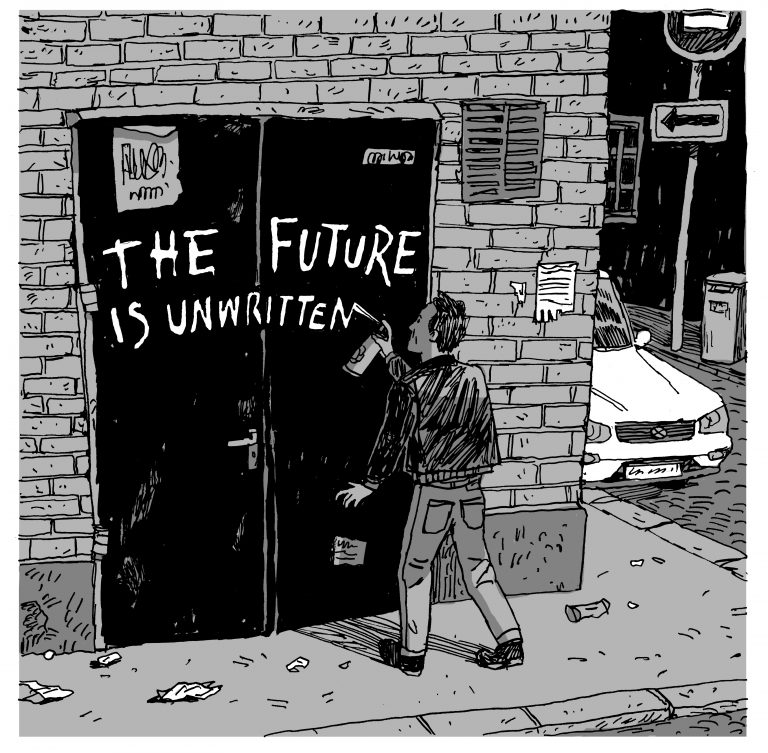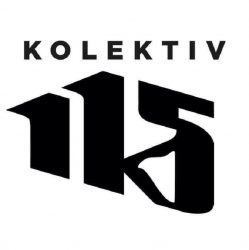
Kolektiv 115: It’s never been just about anti-fascism
A member of Kolektiv 115 – an emerging radical left group in Prague, talks about activist burnout, efforts of bringing together different protest movements, and a search for a new emancipation vocabulary.
What led you to start the new radical left group Kolektiv 115?
The first push came from people around Iniciativa ne rasismu! (INR) who were a bit frustrated by weakness and fragmentation of the Czech movement, so they came with an idea of setting up a wider group that would be better organized, capable of greater cooperation, and also more actionable. Thus, the group could handle more topics at the same time.
Is it just a vision or has it became a reality yet?
K115 is already bigger than INR, because it connects people from various collectives. The key is that it is something qualitatively different. We collaborate with people from different groups and each of them has their own agenda. But we’re far from absorbing already existing initiatives, it’s more like interconnecting their members into a wider collective. Right now there are three work groups within the organization: anti-fascist, feminist and a group focusing on the right to the city. We’re also plannig an environmental working group.
The motto of K115 “Analysis, Action, Emancipation” resembles a German post-autonomous organization TOP Berlin (“Theory, Organization, Praxis”). Is it by accident or was it an inspiration?
We are familiar with the group TOP Berlin, so it is possible, that it could have been inspiration for some people, but we chose the motto for it’s meaning, not as an imitation. There is no coherent activism without analysis, without action you can’t move anything, not a piece of shit and emancipation leads to more liberate and more fair arrangements for both individual and society.
The establishing of your collective goes hand in hand with termination of INR, although the problem of xenophobia is on the rise. Was this a good time to end INR?
Assuming that K115 would just leave the topic of anti-fascism, it would be wrong to terminate INR, but that didn’t happen, it’s still a part of our politics. But while some time ago the biggest problem was militant neonazis and the strategy of INR were public protests and blockades, current situation is different. What we see today is takeover of etabled political structures by fasists. That’s why we need to find new strategies and tactics and anti-fascist praxis, which is one problem we want to solve.
Is there a connection between the exhaustion of INR with reactivity, like, since you reacts to moves of your political opponents all the time, there is no space for opening topics of your own political agenda?
Yes, to some extent. But for INR it was never just about anti-fascism and we tried to present our own vision of politics including feminist topics or critics of capitalism. But for such a small group maybe it was too much which may lead to a frustration. In K115 we may be able to prevent burn-out and even make it easier to return to activism because there are no boundaries between the working groups. When someone is tired by radical anti-fascism he/she can focus on social justice and so on.
In your manifest, instead of traditional left-wing terminology, you use pop-culture references: you quote Dumbledore from Harry Potter, Galadriel from Lord of the Rings or Morpheus from Matrix. Do you want to touch the younger generation?
We wanted to lighten a little bit the opening statement, we’re not a bunch of academics that know Das Kapital by heart and we want to be an inclusive collective. Not everyone got into politics by theory, people got there through subcultures or life experince. The language of left-wing theory is often hard to understand and K115 wants to talk to people also differently then just by language of theory.
But can we actually find some references to left-wing politics in those pieces?
That was not our intention. We know that Tolkien was a conservative, Harry Potter a liberal and Morpheus kind of an elitist. It’s about the meaning of those sentences, not the whole piece. I have noted that some people have problems with it but our choice of quotes doesn’t mean we gave up on left-wing terminology. We just want to update it and make it more inclusive.
Does it work?
It’s an opening statement. We will produce different kind of texts in the future, including academic ones. But people came beacause it touched them. Our experience from the past says this strategy works. It was the same with INR. Where we gave up some words beacause they were like red rag to a bull. It is the same with Klinika, as they have shown similar creative usage of language. In our (post-communist) context we can try to explain over and over again that we don’t want authoritarian communism, but it’s kind of endless struggle.
You want to learn from the mistakes of the past emancipation movements. What mistakes do you have in mind?
Mostly the age-old disease, the sectarianism, for example in the form of strictly subcultural structures or the ideological puritanism and fundamentalism. It is important to discuss ideology and politics, but such issues cannot became rigid dogma. Similarly, the subcultures should not fetishize their own style of life. We dont want to pursue the change through the state structures, for sure. In the same time, we are far from “outlaw style” anarchism, especially the idea that utopic goal is to be achieved only by immediate violent uprising.
Are you trying to reconcile revolutionary marxists with anarchists?
We are using the term “radical left” because it is umbrella term for more traditions of thought and we are trying to grasp the most important from them. In th collective, there are people influenced by anarchism as well as anti-authoritarian Marxism or democratic socialism. Identitarianism is not important at all for us.
You’re planning an event called Rebel Prague: Days for right to the city. Who has the right to the city and how we should practice it?
Definitely the people who live there. There are many possibilities and topics dealing with the right to the city. From housing as a human right, through bike lanes, to collapsing bridges. There are differents ways of how to take the city back, nevertheless we have to remember, that the city today is shaped predominantly by the developers and the market logic, which is the case of the Metropolitan plan. Rebel Prague combines both praxis and theory, offers analysis as well as practical workshops where you can learn for example what to do to avoid evicition.
What is your attitude towards direct actions?
Direct actions are part of the radical left repertoire and we will definitely not give them up. But they shouldn’t be done just because we can feel good about it. In the case of the Days for right to the city we don’t want to tell people what they should do, we want to connect activists who are already active in this sphere with people who are concerned about the state of their city. Together they can find the ways how to take the right to the city in their own hands.
Lukáš Rychetský
Interview was published in magazine A2 n. 18/2018. Illustration by Alexej Klujkov.

